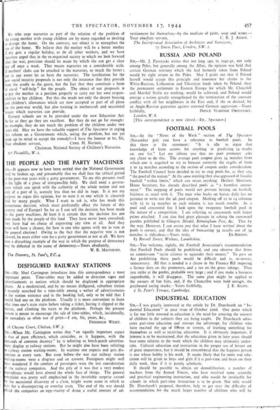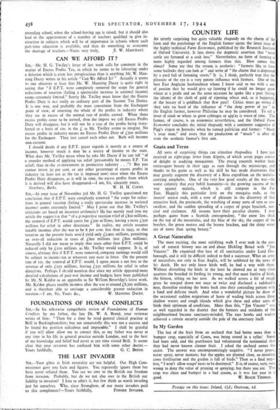INDUSTRIAL EDUCATION
Sta,—I was greatly interested in the article by Dr. Dunsheath on " In- dustrial Education " in your issue of October 22nd. One point which is far too little stressed in education is the need for arousing the interest of children in the subjects they are being taught. Dr. Dunsheath advo- cates part-time education and stresses the advantage, for children who have reached the age of fifteen or sixteen, of learning something for themselves as well as receiving education. It is obviously important, if interest is to be maintained, that the education given in later years should bear some relation to the work which the children may ultimately under- take. Cultural education and instruction in the proper use of leisure are of great importance, but it should be remembered that the happiest person is one whose hobby is his work. It seems likely that far more real edu- cation will be given to boys and girls if it is part-time and bears on their daily work, than if it is purely scholastic.
It should be possible to obtain on demobilization, a number of teachers from the Armed Forces, who have received some scientific and practical engineering instruction, and who would be invaluable for schools in which part-time instruction is to be given. Not only would Dr. Dunsheath's proposal, therefore, help to get over the difficulty of accommodation for the much larger number of children who will be attending school, when the school-leaving age is raised, but it should also lead to the appointment of a number of teachers qualified to give in- struction in subjects which will be of importance in schools where such part-time education is available, and then do something to overcome the shortage of teachers.—Yours very truly, E. W. MARCHANT.



























 Previous page
Previous page